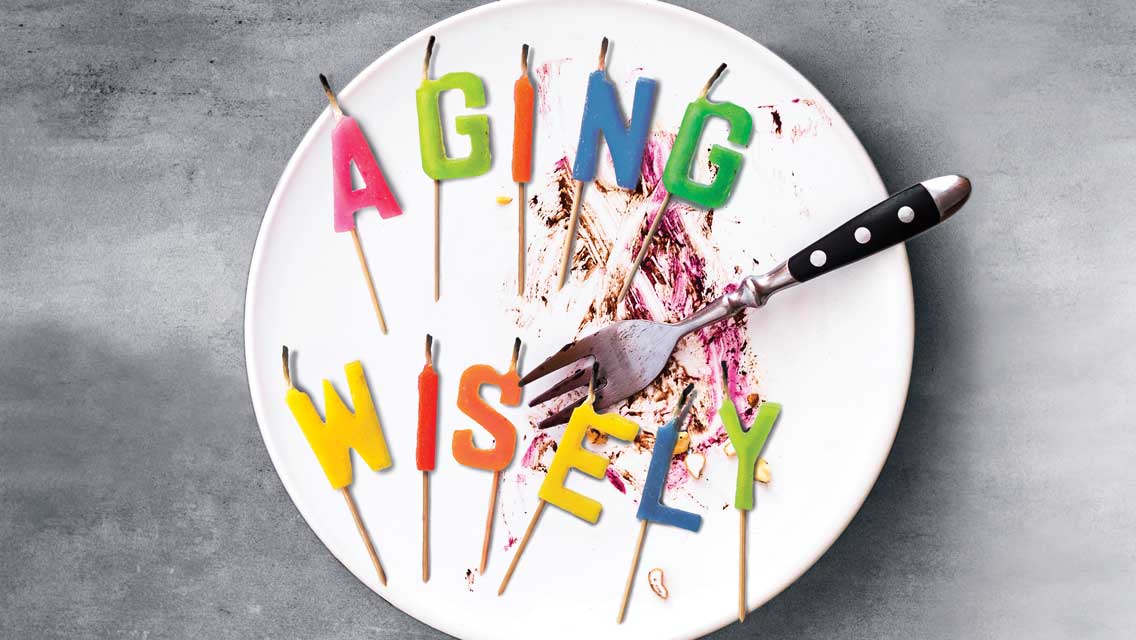It’s hard to think about growing old without experiencing a bit of cognitive dissonance. When I turned 50, for instance, 50 seemed really old — probably because I hadn’t yet realized that I was still relatively young. More than two decades later, I find the prospect of turning 80 holds more allure than dread, perhaps because I’m reminded numerous times each day that I’m already old. Been there, done that.
What I find interesting when recalling my attitude about aging back then is that the factors I now tend to ascribe to my mostly positive views — reasonably good health, enjoyable employment, a fairly low-stress lifestyle — were also in place during my milestone birthday. So why did my 50-year-old self disparage aging so much more than the current septuagenarian version of myself, who’s more familiar with its liabilities?
As Yale psychology and public health professor Becca Levy, PhD, notes in her 2022 book, Breaking the Age Code, the extent to which we embrace negative cultural views of aging can skew our own beliefs about growing old. For some, like my younger self, old age is foreign territory whose landscape is generally described in apocalyptic terms. It’s not surprising that people develop a certain bias against the aged and lament the whole idea of growing old.
Once we’ve piled up the years, however, and explored the territory, it’s easier to understand — and maybe even appreciate — the joys and challenges we encounter. That’s not to say most seniors harbor an upbeat mindset about the years ahead or that our myriad bodily malfunctions emerge without some accompanying vexation. But maybe we become more accustomed to the obstacles and begin to believe we’ll be able to adjust our approach when necessary. And when we come to realize that every day is a bonus, what’s not to like?
Levy has long argued that a more positive view of aging can contribute to a longer and healthier lifespan. The results of her latest study suggest those views may even affect our ability to recover from cognitive dysfunction in our later years.
Analyzing data from 1,716 seniors with mild cognitive impairment (MCI) who participated in the University of Michigan’s Health and Retirement Study, Levy and her team found those who exhibited positive views about aging were 30 percent more likely than their more negative counterparts to regain normal cognition. And they recovered as much as two years faster than those with negative perceptions — regardless of the degree of MCI severity they suffered.
“Most people assume there is no recovery from MCI, but in fact half of those who have it do recover,” Levy says. “Little is known about why some recover while others don’t. That’s why we looked at positive age beliefs, to see if they would help provide an answer.”
The study, published last week in JAMA Network Open, is the first to associate cultural views with MCI recovery. After accounting for various health and demographic factors, the researchers analyzed the results of biannual cognitive tests conducted over a 12-year period to reach their conclusions. The resulting salutary effects of a proaging perspective, Levy explains, probably derive from lower levels of anxiety about the perils of growing old — which may also contribute to healthier lifestyle choices.
“Previous studies have reported that cognition is predicted by stress levels and health behaviors, both of which can be improved by positive age beliefs,” she writes. “Considering that positive age beliefs can be strengthened, our findings suggest that age-belief interventions at individual and societal levels could increase the number of people who experience cognitive recovery.”
What those interventions may entail is anyone’s guess, I suppose, but I’m not anticipating much of a shift in the mainstream cultural narrative about aging — even with 72 million boomers meandering toward their expiration dates. And I don’t encounter too many 50-somethings these days who openly relish that slow march toward elderhood, so it’s hard to know how Levy’s research will be received.
My own experience tells me that you have to settle in for a while here in Geezerville before you can begin to appreciate its virtues. And if that appreciation happens to aid in the recapture of some wayward cognitive function, that’s just another bonus.





This Post Has 0 Comments